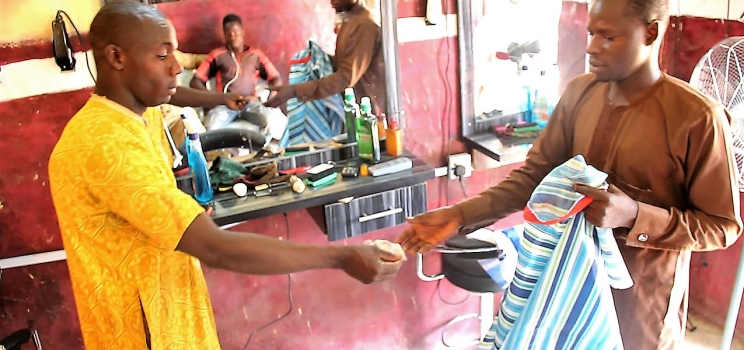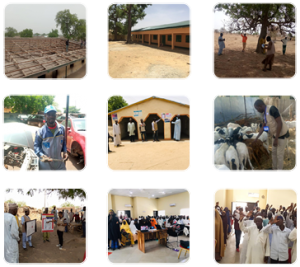In view of the transition from emergency to recovery, the United Nations World Food Programme, WFP is helping conflict affected families to recover, prosper and build resilience by creating small businesses through income generating activities, while sustaining the provision of essential life-saving and nutrition food assistance in Yobe communities, Northeast Nigeria.
Across Gujba and Gulani Local government areas of Yobe state, the World Food Programme in Partnership with Centre for Community Development and Research Network is reaching out to 1200 vulnerable households with a robust intervention aimed at boosting self-reliance, promoting economic recovery and fostering community development through the provision of Income Generating Activities (IGA) to promote longer term resilience.
The activity which kicked off In January of 2020 consists of small businesses and activities managed by targeted families individually and in group to increase their household income through livelihood diversification and boost their nutrition status. The income generating activities includes, barbing saloon, micro economic gardening, oil extraction, food processing, grain processing, tailoring, ice block making, local pasta making, and tomato processing.
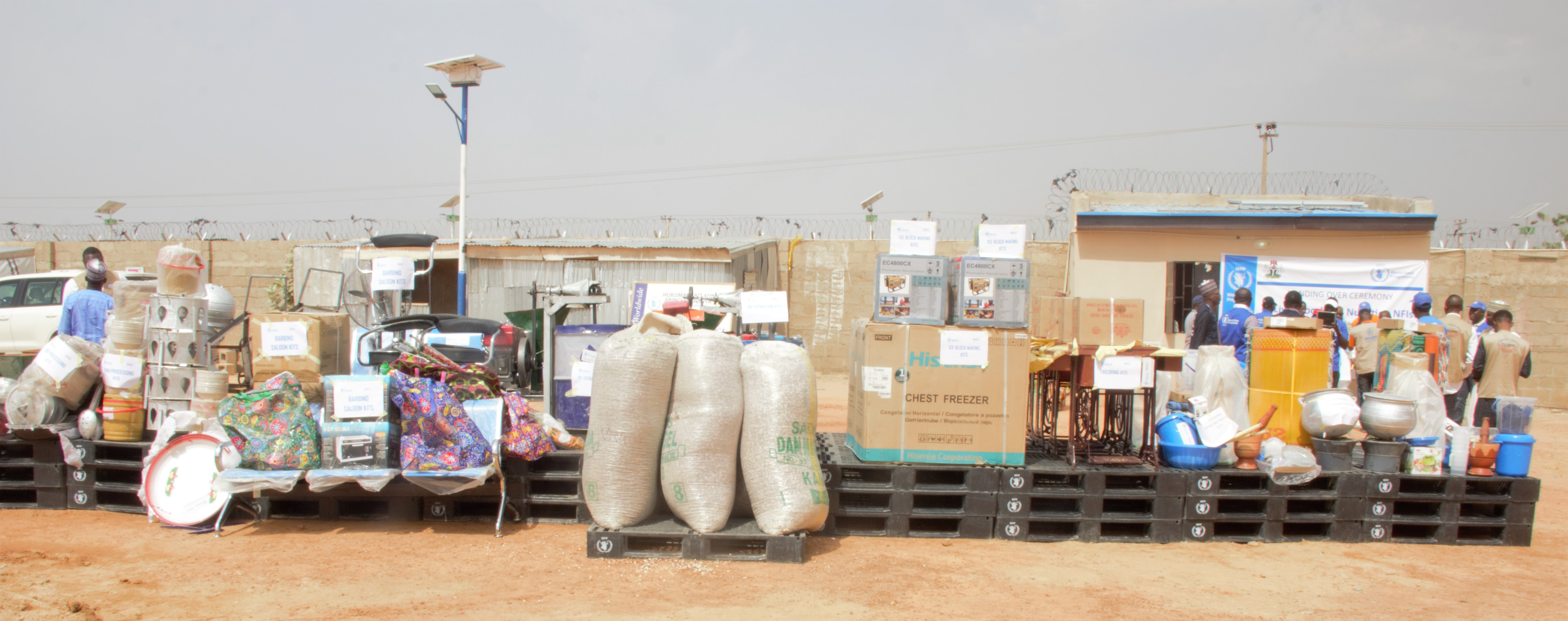
Start-up Kits in full display during handing over ceremony
23 year old Rabiu Mohammed is one of the people we serve, who benefitted from the barbing saloon component of the income generating activities in Gujba LGA. Though Rabiu and some of his peers have had a little involvement in Barbing saloon business in makeshift huts and this served as their means of livelihood prior to their displacement by the insurgency which ravaged most parts of the northeast of Nigeria. However, after returning to their communities, they had nothing to fall back on. The situation was precarious until WFP intervened through the Income Generating activities initiative, providing them with a leeway to start over their barbing businesses again
As part of the intervention, WFP provided Rabiu and 20 others in the barbing category with modern barbing kits, a full year shop rent and power generating source.
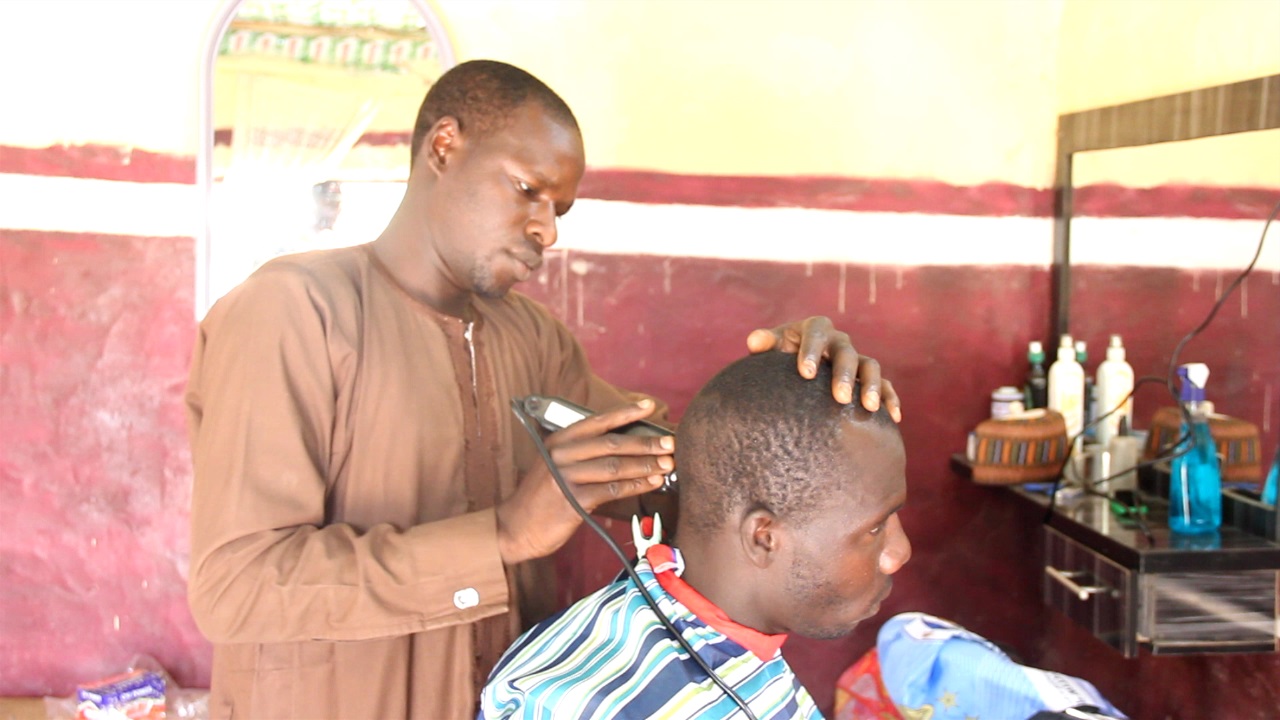
Rabiu, a beneficiary of the barbing saloon component of the IGAs
Rabiu and other barbers empowered via the income generating activities intervention also learnt modern haircuts and styles which has been pooling in customers from around their community.
Rabiu and the two other barbers occupy the same barbers shop, paid for under the intervention. On a daily basis, they make up to 650 naira which is almost 2 dollars from haircuts individually. This income may seem very small, but in an environment and circumstance where people have been cut off from their support system with almost no access to any means of livelihood, while depending on interventions to meet their food and nutrition needs, this can be a dream come true and life changing.
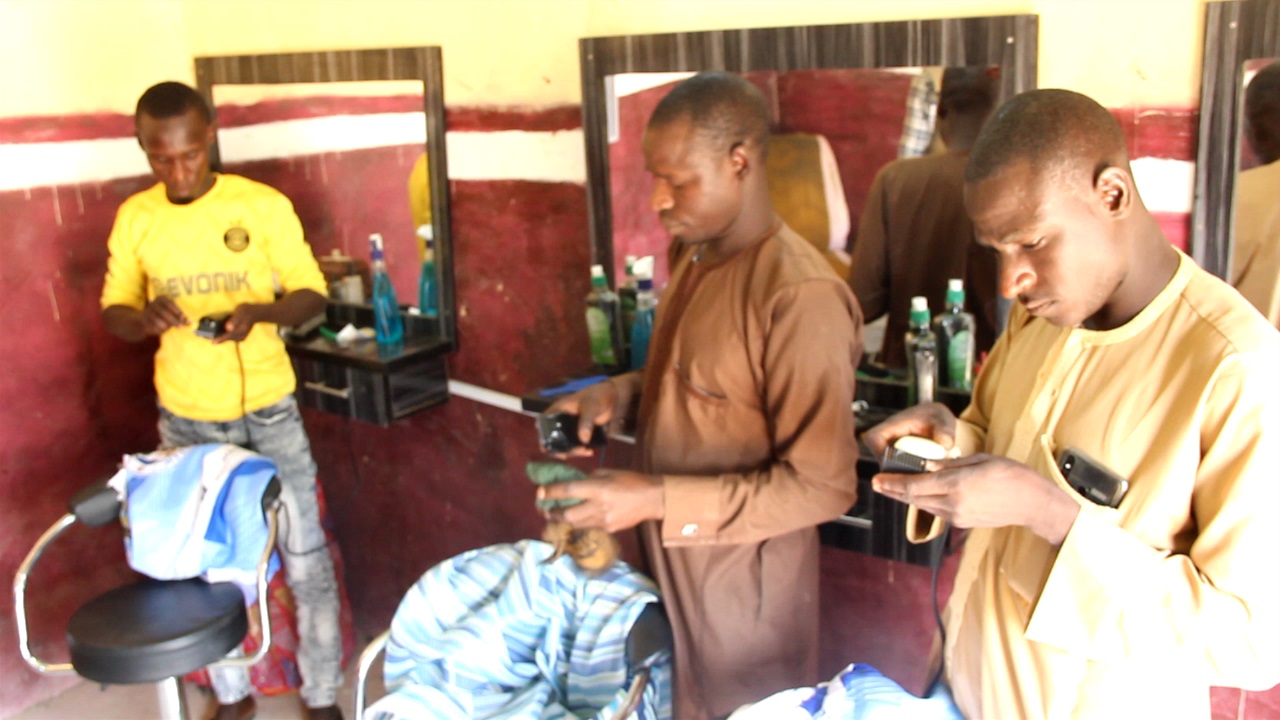
Rabiu and the two other beneficiaries of the intervention who share the same barber shop
The gardening project was started as part of the World Food Programme’s self-reliance activities in Gujba for both IDPs and Vulnerable host communities which have reached some 200 households. CCDRN with funding support from WFP provides training in vegetable gardening as well as distribution of items such as spades, buckets, seeds, and hoes.
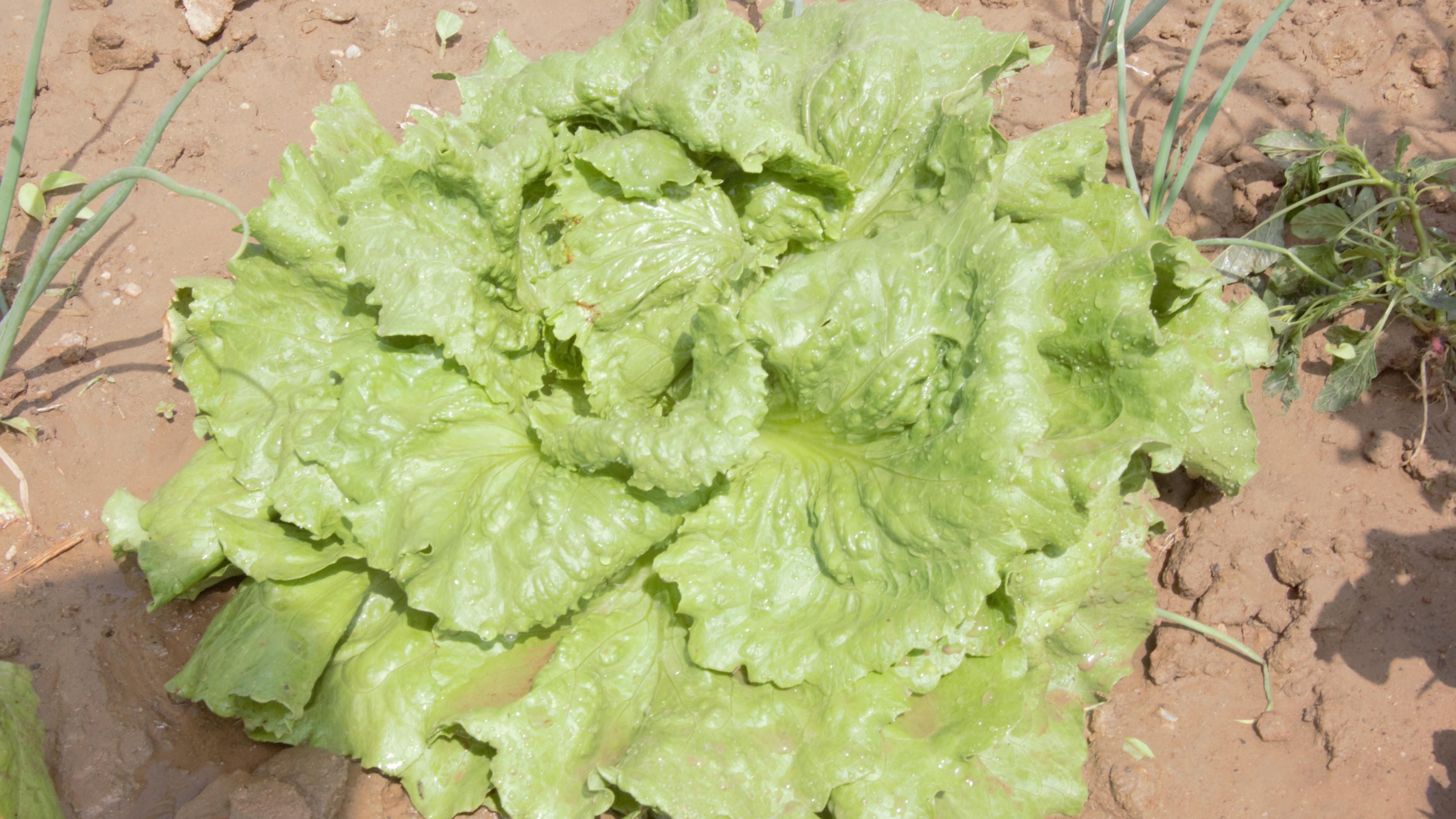

Gardens are an important source of food for mothers such as Maryam Gambo. She has two young children and vegetables are their favorite food. The family receives monthly rations of rice, pulses, and oil but has little access to other sources of food. The spinach, and salad Maryam grows in her small garden is something the family looks forward to.
“I am happy with this intervention. Now every meal we eat in my family is served with vegetables from this garden. I have also been able to sell some surplus to meet other needs like buying soap for washing cloths and other essential needs” says Maryam

Maryam watering her garden where she plants spinach and lettuce
The IDP camp in Gujba is mostly made of rafters and thatch, however, what really stands out though is the number of gardens that are growing inside the IDP shelters. This is making a lot of difference. “This garden has been very helpful. I have been using the fresh vegetables from this garden to eat rice and grain meal I am receiving from world food” says Haja Kolo an internally displaced mother of 5.
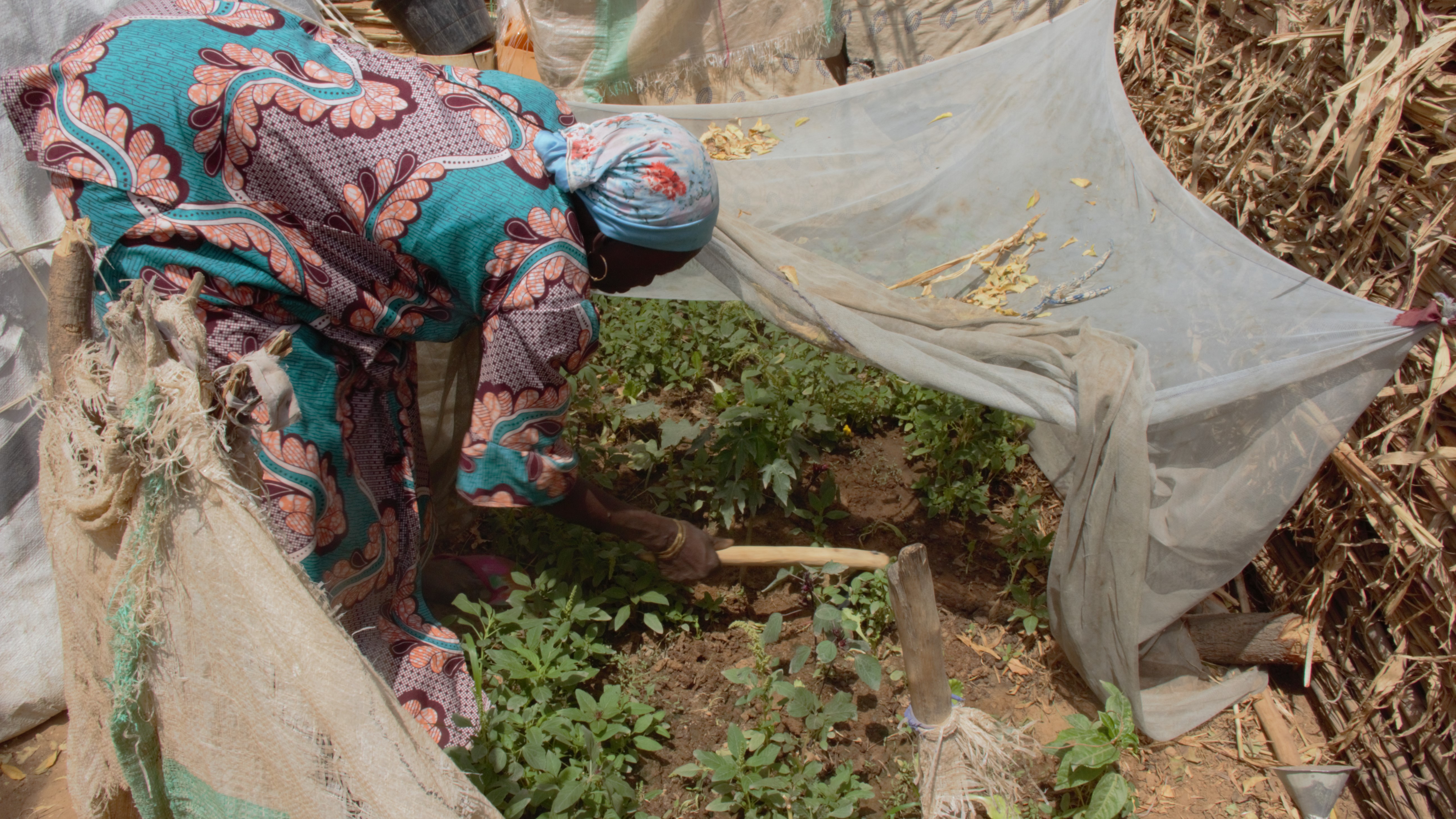
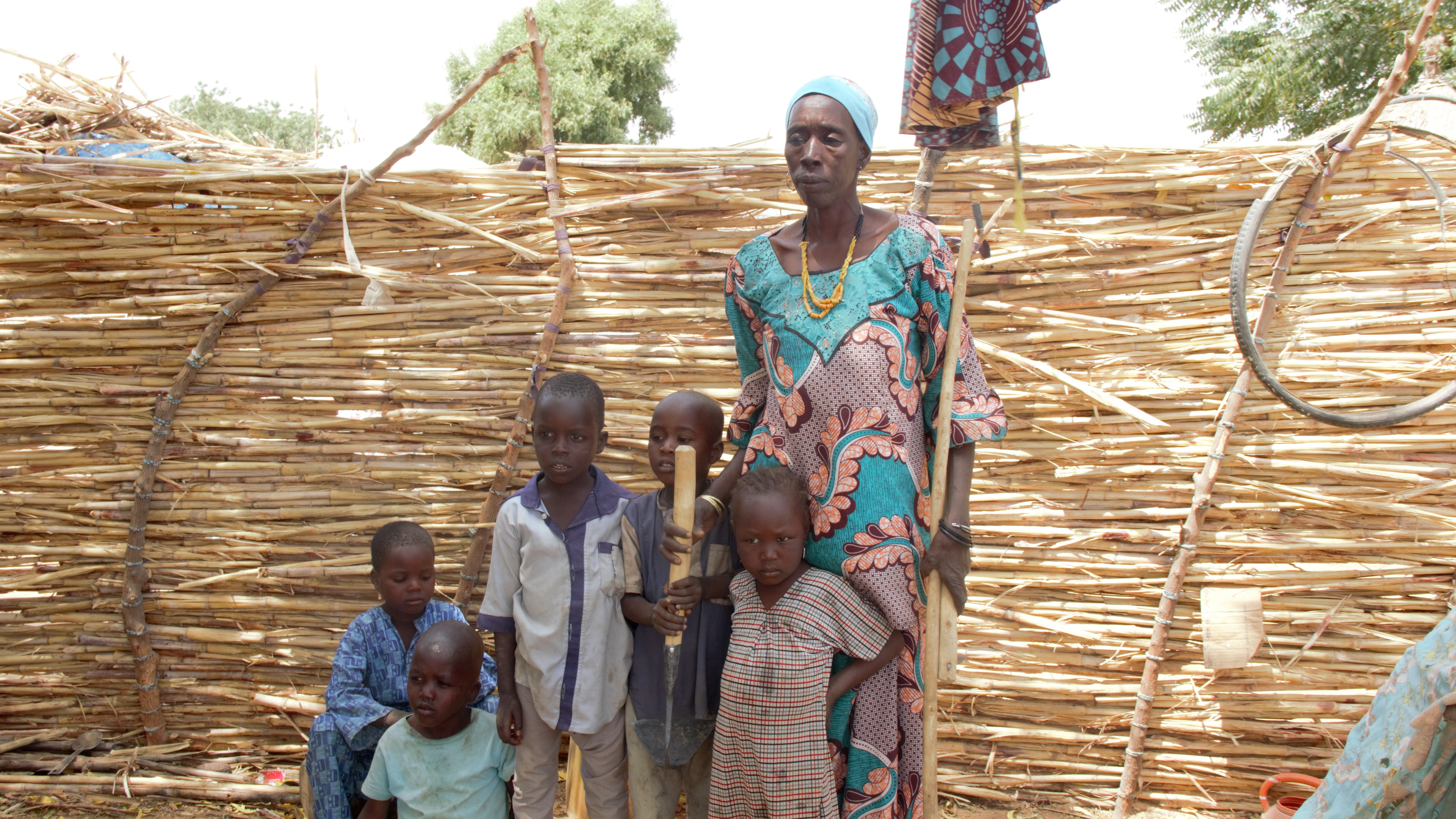
Hajja Kolo
